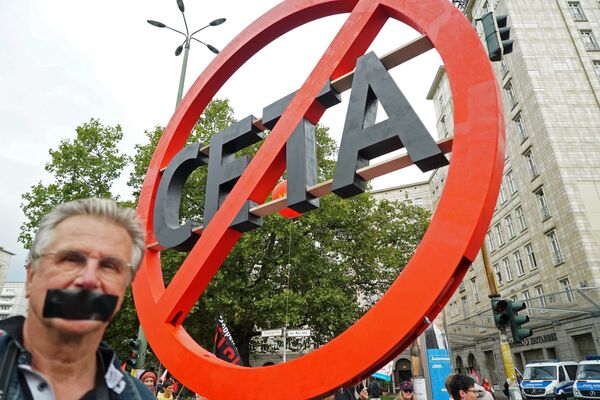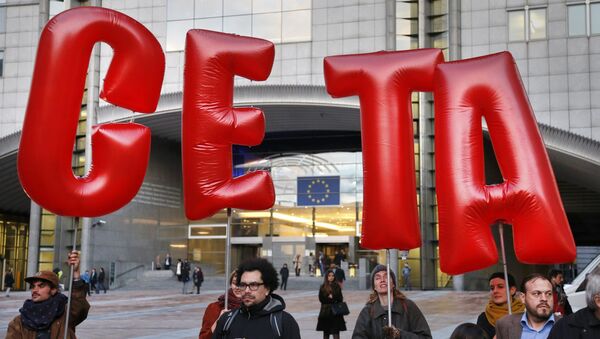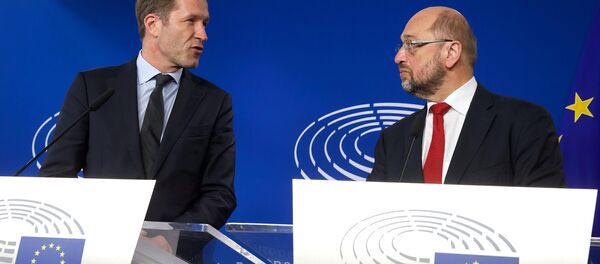However, the signing ceremony scheduled for October 27 — with Canadian Prime Minister Justin Trudeau due to fly to Brussels for it — is looking in doubt after Belgium failed to gain the support of two of its regional parliaments: Wallonia and Brussels-Capital. In Belgium, it is not just the federal government that can ratify EU decisions — all five regional parliaments have to as well.
Charest told the Canadian National Post newspaper:
"In the next few weeks, I think we're just going to have to let things cool down. The harder we push, now, it'll just entrench the Walloons in their position. You get to the point in that dynamic where then it becomes a point of pride, their opposition becomes a point of pride."
Meanwhile, the President of the Walloon parliament, which — unlike the Brussels Capital parliament which is opposing CETA — has formally voted against the deal, told RTL radio his parliament would not yield to the pressure being exerted on it from Brussels, saying:
"It will not be possible for us to keep to the ultimatum."
The impasse forced Belgium's Prime Minister Charles Michel, to admit that his country is "not in a position to sign CETA," putting the whole deal at risk, as all 28 member states' parliaments have to approve the final agreement.
Wallonia, region of 3.2 million ppl, blocks #CETA —an EU trade deal 7yrs in the making- and kills #Brexit myth #EU is undemocratic. pic.twitter.com/2xL0d8zUOk
— UKtoStay.EU (@uktostayeu) October 24, 2016
Flawed System
The deadlock over CETA is threatening to put at risk three other trade negotiations: the Transatlantic Trade and Investment Partnership (TTIP) between the EU and the US; the Trade in Services Agreement (TiSA) between 23 members of the World Trade Organization and the EU; and the future Brexit negotiations on a new trade agreement between the EU and the United Kingdom.

The fact that the EU — as a whole — cannot reach agreement over the CETA trade deal that has been eight years in gestation exemplifies the flaws in the Brussels system. Under the Lisbon Treaty, signed by all EU member states and which came into force in 2009, CETA is treated as a "mixed" trade agreement, which — crucially — requires the unanimous backing of all 28 member states.
Fact that Wallonia was able to block #CETA shows how delusional those expecting the UK to throw its weight around post #Brexit really are. pic.twitter.com/pxLwoZ87Kj
— Tom Brake MP (@thomasbrake) October 24, 2016
If one state rejects it — as Belgium has, so far, done — the whole deal is off, throwing TTIP, TiSA, Brexit and any other trade deal with Europe into doubt. Despite this, European Council President Donald Tusk remains supremely — if misguidedly — confident the CETA deal will still be signed, October 27.



